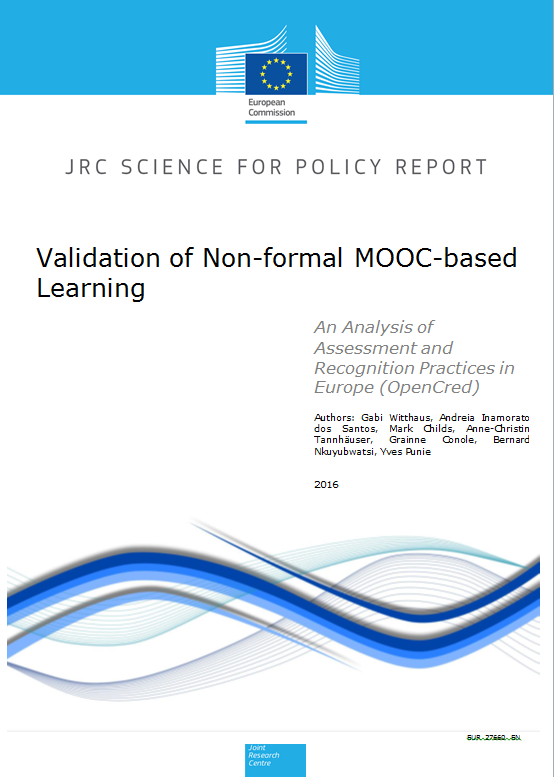MOOC stands for Massive Open Online Course.
It is an online course offered by an education institution which is open to the world - learners can take the course without the need of being formally registered as a student at the institution.
MOOCs have originally been conceptualised to be open in the following ways:
- free of charge (gratis),
- openly licensed (libre), with
- open entry (no need for previous studies or to show diplomas/certificates).
The JRC studies OpenCases and OpenCred bring examples of sucessful business models for MOOCs and assessment practices for learners.
MOOCs should allow learners to carry credits within the European Credit Transfer System (ECTS), for potential recognition by other higher education institutions through existing credit transfer arrangements.
Related publication:

Do's and Dont's of Creating MOOC (Part I): The Importance of MOOcs
Related Content
Download report: Validation of Non-formal MOOC-based Learning
